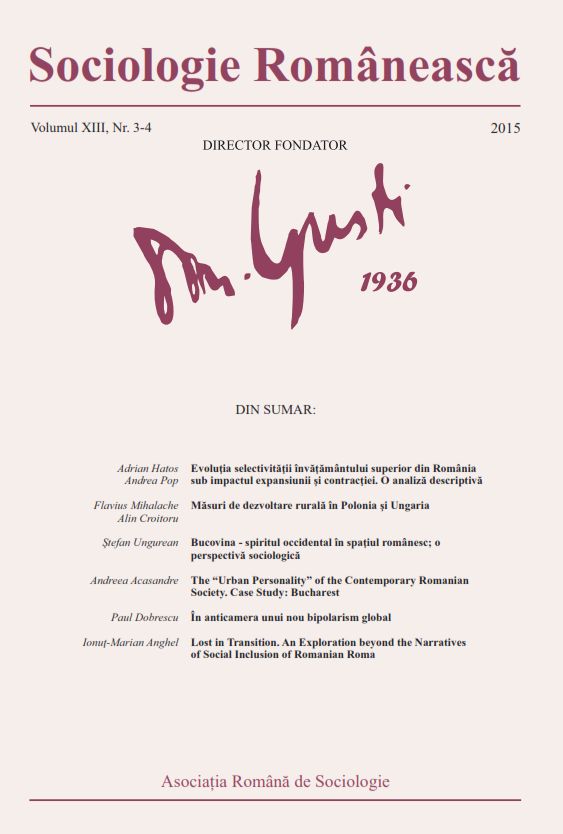Măsuri de dezvoltare rurală în Polonia şi Ungaria
Rural Development Measures in Poland and Hungary
Author(s): Flavius Mihalache, Alin CroitoruSubject(s): Sociology
Published by: Editura Eikon
Keywords: rural development; rural entrepreneurship; agricultural sector; Poland; Hungary
Summary/Abstract: The main objective of this paper is to highlight some key aspects of the rural transformation in Poland and Hungary after the collapse of the communist regimes. We selected these two cases taking into account a series of similarities and differences between their rural evolution and the situation from Romania and we employed a comparative perspective. The analytical framework pays attention to the specific historical background and to the shaping force of the European Common Agricultural Policy. Since early '90s Poland’s rural development strategy was focused on three main dimensions: rural economy diversification, support for small family farms and social security for farmers. On the other hand, the priorities of the Hungarian decision makers were concentrated on the agrarian sector initiatives and the local development programs. Over the past decades, the governmental programs of these countries significantly influenced the process of reconstruction of the social and economic features of the rural areas. The final part of the paper emphasizes that in comparison with Romania's experience on handling rural development programs, Poland and Hungary adopted more adequate and reliable policies and from this perspective the evolution of these two countries could represent a model of good practice in this European region.
Journal: Sociologie Românească
- Issue Year: 13/2015
- Issue No: 03+04
- Page Range: 19-35
- Page Count: 17
- Language: Romanian

